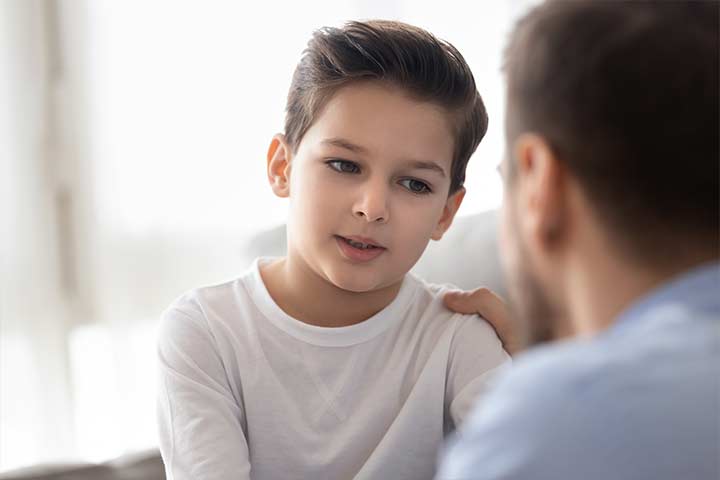
Image: Shutterstock
Parenting styles have changed drastically over the years. You don’t parent your children the same way your parents raised you. People have taken it upon themselves to unlearn, relearn and find new ways to parent effectively. But no matter what we do, it never gets easier. People from older generations may complain that they didn’t have the facilities you now have, but they didn’t have your challenges either. With constant technological advancements, different types of schooling, a pandemic and a million other factors, it’s hard to keep track of the kind of parents we want to be. In fact, most of us fall into 4 distinct categories of parenting that all have their own advantages and drawbacks. Would you like to find out which one resonates with you and how this affects your kids? Read on to find out!
1. Authoritarian Parenting
Image: Shutterstock
Most of the character traits of an authoritarian parent were displayed by our parents or grandparents. In other words, it’s old school and outdated. If you believe that you know what’s best for your child in every situation, that kids must be seen and not heard. You generally don’t take your child’s feelings into consideration (although we’re sure you don’t phrase it that way), then this is your parenting style. Authoritarian parents believe in enforcing strict rules that must be followed without any exception. They don’t offer an explanation or insight into why these rules were laid out in the first place when their child asks for a reason. Authoritarian parents don’t feel the need to help their children understand the meaning behind their actions and expectations. Their word is law simply because they say so.
This means that kids are not allowed to get involved in problem solving challenges. They may also grow up to have low self-esteem as their opinion was never valued. They may also become hostile or aggressive as they tend to dwell on the anger they harbor for their parents. Children of authoritarian parents also happen to be good liars as they get used to hiding things in order to not be punished.
2. Authoritative Parenting
Image: Shutterstock
Authoritarian parents are quite the opposite. They make efforts to maintain a positive connection with their children, they take their kid’s feelings into consideration and although they too enforce rules and consequences, they take the time to explain the reason behind them so that the children know why they are in place. Authoritative parents often invest time and energy into preventing negative behaviors from forming in order to do away with punishments and unpleasant situations. They share a deep bond with their kids and validate their feelings while still conveying that adults are ultimately in charge. As a result their children are good at decision making and evaluating risks on their own. They tend to be happy and successful when they grow up.
3. Permissive Parenting
Image: Shutterstock
If you set rules but rarely reinforce them, or don’t really deal out consequences and believe that your child is better off left to their own devices, then you’re a permissive parent. They are often characterized as lenient and only step in during emergencies. They want to be more of a friend than a parent. As a result, they forgive their kids easily and give into their demands. If the child begs and cries enough they will relent and let them have their way. They talk to their children and encourage them to share their problems but they don’t put in enough effort to discourage negative behavior. As a result, these kids exhibit behavioral problems and might not do well academically. They may also be in danger of serious health issues like obesity and heart problems as no one is monitoring their junk food intake.
4. Uninvolved Parenting
Image: Shutterstock
As the name suggests, these parents are barely involved in the lives of their children. They don’t enquire about their school or their friends and rarely know what their child is up to and with whom. They prefer not to spend time with the kids and have few rules. Children do not receive any guidance, nourishment or attention from them. Uninvolved parents expect children to raise themselves and don’t devote much energy into meeting their needs.
They can be neglectful but it is not always intentional. For example, a parent with severe mental health issues or substance abuse issues may not be able to take care of their kids consistently. Children with uninvolved parents struggle with self-esteem issues. They may also do poorly in school as they may be looking after their parents or worrying about food, rent and other basic necessities. As a result they also rank low in happiness and may have behavioral problems.
Parenting has its highs and lows no matter what parenting style you most identify with. The important thing is to do your best and be present when your children need you. Is there a parenting type you would like to add to our list?? Let us know in the comments section!
















